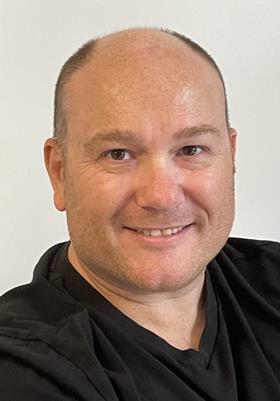In April 2024, Law Society president Nick Emmerson said 'urgent action is needed now to tackle the very real crisis our criminal justice system is currently in.'

Academics, pundits, practitioners, judges and many others have been singing this tune for years. Magic circle firms have committed to a starting salary of £150,000 for their newly qualified associates, trainees get £50,000+ in their first year. How can a career as a criminal practitioner ever compete? In 2021a trio of academics laid down the gauntlet by saying that universities needed to do their part to support the criminal legal profession:
'Within this process, we are aware of problems in the criminal justice system and ,in particular, the challenges faced by criminal practitioners. We feel a duty to play a role in fighting to protect an institution that we see great importance in. That said, the task of providing resilience to the criminal defence profession is not ours alone; universities should also play a greater role in supporting the legal profession. Doing so will not only illustrate that they take seriously their students’ futures but that they also recognise – and place value on – contributing to wider society'
- Nicola Harris, Roxanna Dehaghani & Daniel Newman (2021): Vulnerability, the future of the criminal defence profession, and the implications for teaching and learning, The LawTeacher.
Having been in legal education for the past fourteen years I have seen many changes in the motivations of our students. It is quite clear that the neoliberal forces of marketisation of the sector have had an influence on the motives of many of Generation Z students. The vast majority are motivated not by any social agenda but, understandably, on a large figure salary and often aspire to have a commercial practice, as they see that as the way to earn money. It is for this reason that we, as a society, should be worried about the future of criminal practice.
Ever since Professor David Kolb in 1984 developed his learning model there has been a gradual revolution in terms of the approach to teaching law at university. In 1973, The University of Kent was the first UK university to embrace the idea of a clinical legal education and to introduce a law clinic in a university setting. The role of the university law clinic has changed in line with access the public has to legal aid and assistance and some form of clinical legal education is now offered in over 94% of our universities allowing over 10,000 students annually to undertake work for their local communities. Although many clinics have criminal justice elements to them, on the whole, students are not exposed to first instance criminal cases in our Magistrates or Crown Courts. Nor do many students decide of their own volition to take themselves to their local criminal courts. This lack of exposure, of course, means that our young lawyers of the future do not know the value of the work of the criminal practitioner.
Many of a certain age may recall the role of the ‘outdoor clerk’. That person from the firm who would be tasked with turning up to court with the file and who would assist counsel and liaise with the office if necessary. It is a role that I, as a student back in the 1990s, remember fondly. When I qualified as a barrister, I then got instructed regularly by that firm. Due to successive legal aid cuts that role has long been, extinguished meaning that the advocate is at court on their own. This can cause a disconnect between the firm and the client.
It was for this reason why, in November 2021, I along with lecturer colleague, Trevor Linn, started our SOCS (Student Outdoor Clerking Scheme). The premise behind SOCS is that it is a student administered scheme whereby criminal defence firms get in touch and ask for a trained student outdoor clerk to attend court. This is particularly useful for trials that involve a lot of cross examination or in cases involving vulnerable clients who could do with that extra hand-holding. It has been hugely successful. Since the scheme started we have serviced over 80 cases, sat in on over 230 court days and involved over 120 law students.
One of the key aspects of the relationship between firms, advocates and students is the ability to communicate confidentially. It is for this reason that in order to exchange papers, notes and attendance notes, we have been able to use ‘Thomson Reuters Case Center’. This is a system which everyone is familiar with as it is the same system that participants use in the criminal trials themselves (DCS).
The scheme has provided a valuable service and has opened student eyes to the criminal justice system in a unique way. Many of the students now want to pursue a career in criminal practice with them applying to criminal firms for paralegal positions or criminal sets of chambers for pupillage.
There is now a move to expand the scheme nationally and we need universities and criminal law firms from across the country to join together to make this a reality. Richard Atkinson, vice president of the Law Society and partner at Tuckers, said: ‘My firm has used SOCS since November 2021 and we have been really impressed by the scheme. It not only assists us in being able to support advocates more fully at court but it also acts as a great introduction to students interested in a career in criminal law. I see great potential in it being rolled out nationally, and I look forward to helping that happen’. If the advance of clinical legal education from the very first university law clinic in 1973 has taught us anything, it is that anything is possible with a spark of a new idea.
If any law firm or law school from across the country would like to be involved, please contact Darren Weir at d.weir@kent.ac.uk
Darren Weir is a senior lecturer and director of lawyering skills at the University Kent
































5 Readers' comments